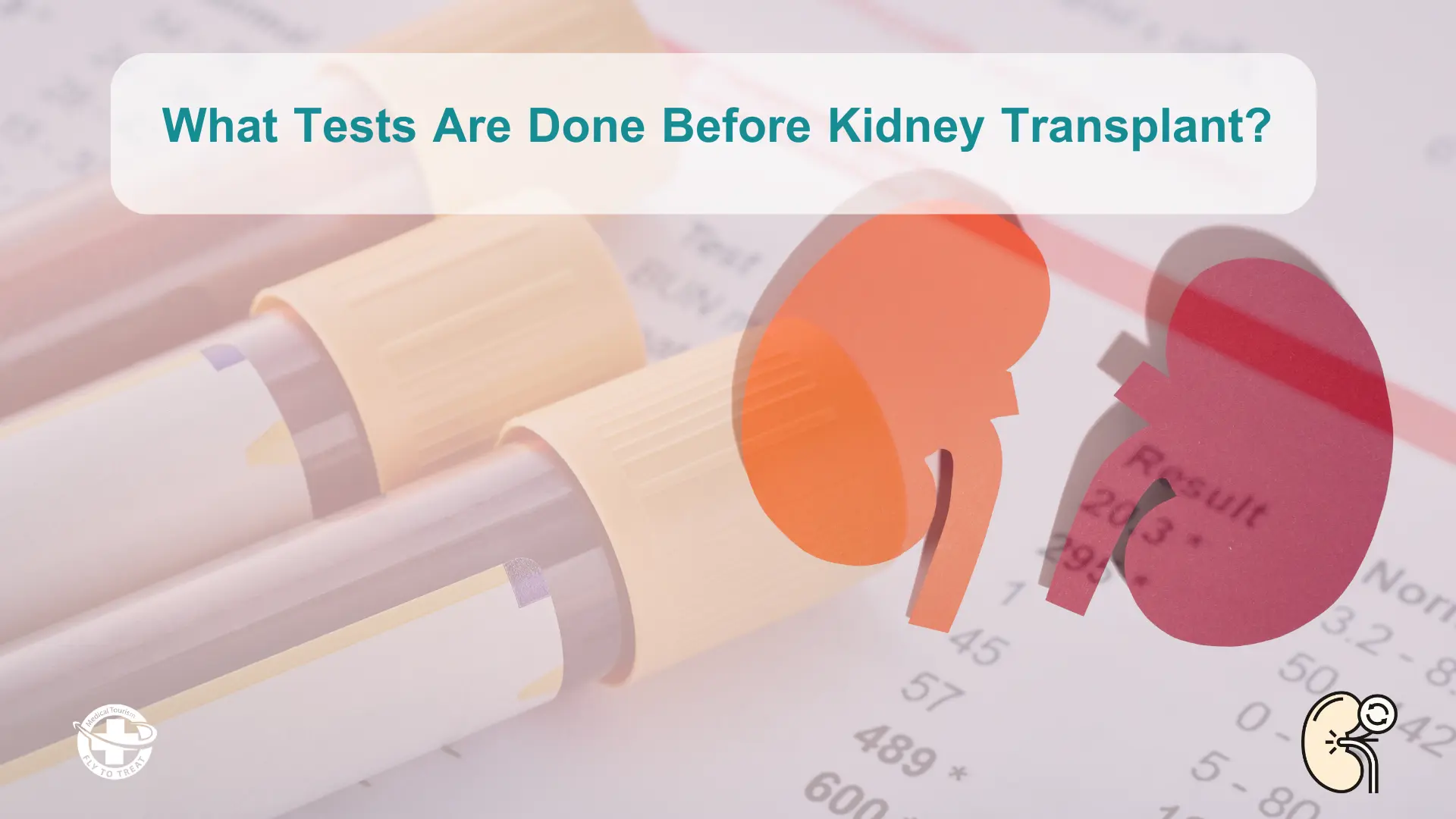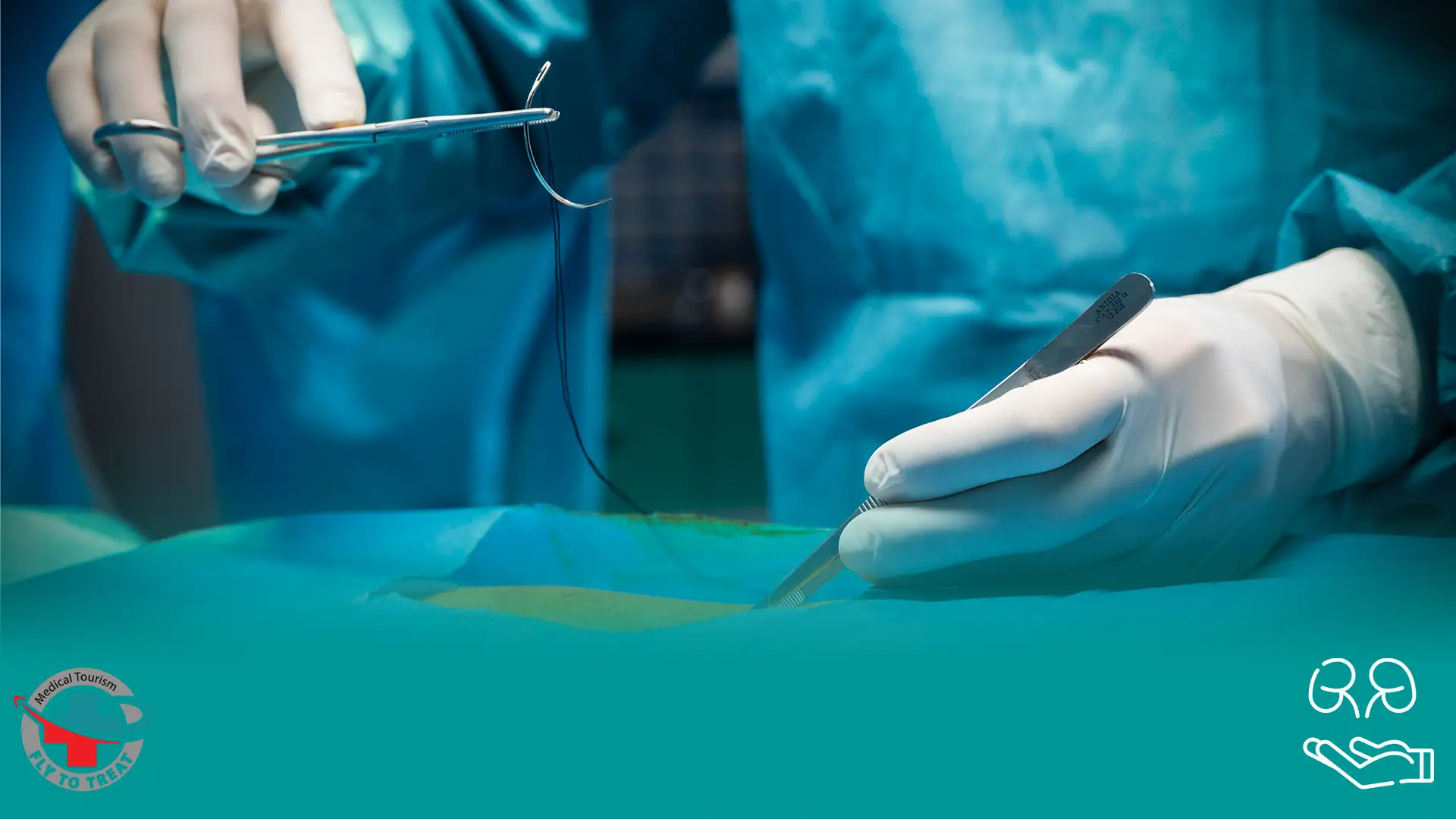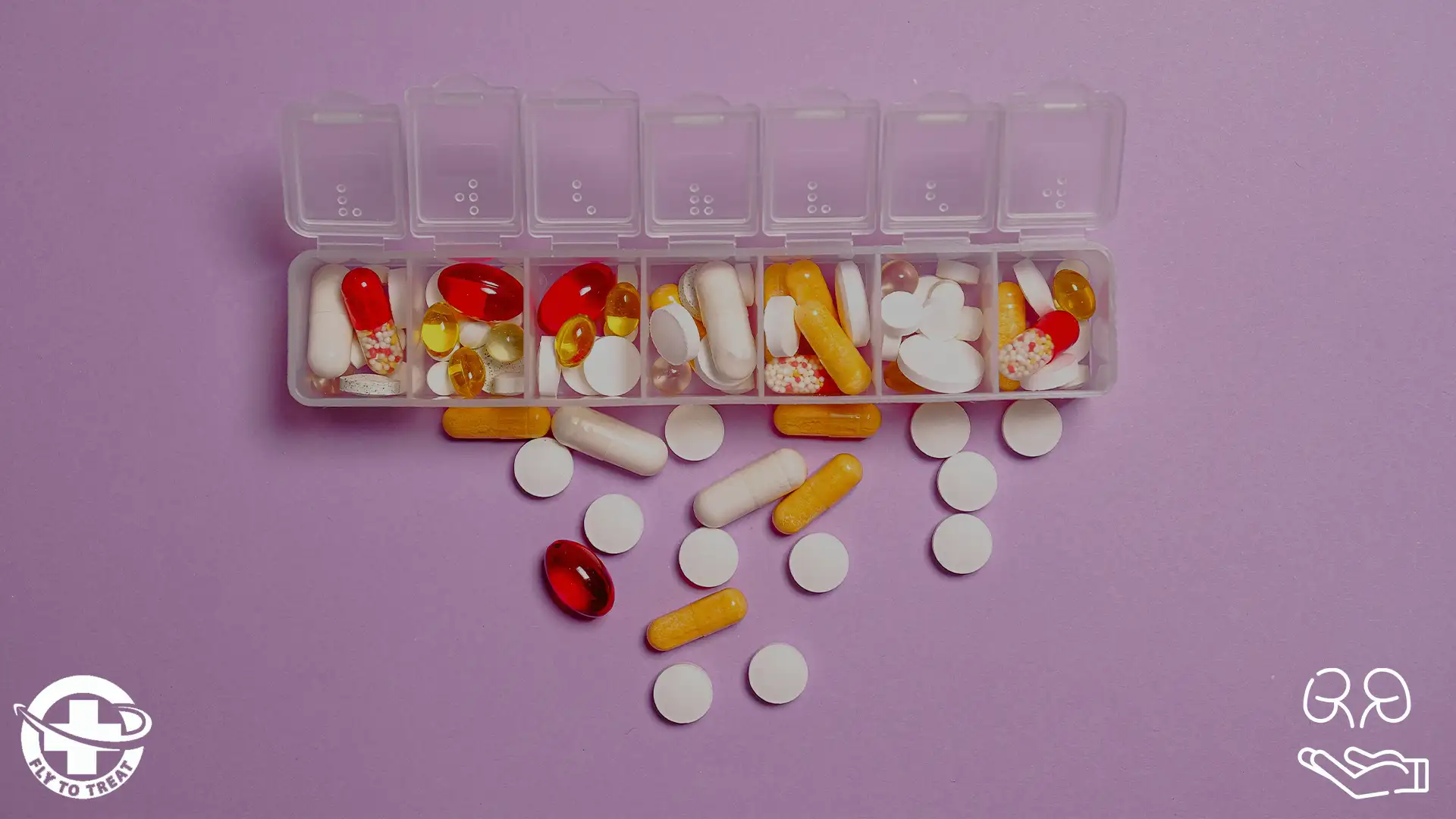
What Tests Are Done Before Kidney Transplant?
Kidney transplant testing involves a comprehensive series of medical evaluations required prior to kidney transplantation in order to maximize the likelihood of a kidney transplant success rate and minimize any potential risks.
The kidney transplant evaluation process is critical to thoroughly assess kidney transplant candidates in order to identify and manage concurrent conditions that may impact both transplant candidacy and post-transplant perioperative risk and survival.
In this article, we will review topics such as tests before kidney transplant, pre-kidney transplant preparation, and tests for kidney transplant compatibility.
You may also want to learn about “How kidney transplant procedure take place step by step.”
FlytoTreat, as a specialist medical tourism facilitator, provides you with comprehensive information and free consultation regarding the kidney transplant evaluation process and can recommend you the best and most affordable clinic centers all over the world to make your kidney transplant process easier.
Click here to strategize your treatment journey.
Table of Contents
What Tests Are Done Before Kidney Transplant?
Before a kidney transplant, the recipient must undergo several tests to ensure compatibility and overall health. These tests help doctors determine if the patient is a suitable candidate and if the donor’s kidney is a good match.
The necessary kidney transplant tests are as follows:
1. Blood Tests
- Blood Type Matching ensures compatibility between donor and recipient (A, B, AB, or O).
- HLA (Human Leukocyte Antigen) Typing checks if the genetic markers match to reduce rejection risk.
- Crossmatch Test checks whether the recipient’s immune system will attack the donor’s kidney by mixing blood samples. A negative crossmatch means compatibility.
2. Kidney Function Tests
- Creatinine & GFR (Glomerular Filtration Rate) measures kidney efficiency.
- Urine Tests that detect protein or abnormalities affecting kidney health.
3. Immune System and Infection Screening
- Antibody Screening checks for pre-formed antibodies that could reject the donor kidney.
- Hepatitis, HIV, and TB tests ensure no infectious diseases complicate the transplant.
4. Heart & Lung Evaluation
- EKG & Echocardiogram checks heart health to ensure the recipient can tolerate surgery.
- Chest X-ray or CT Scan examines lung conditions and detects infections or abnormalities.
5. General Health Assessment
- Diabetes & Blood Sugar Tests: Since diabetes affects kidney health, it must be controlled.
- Liver Function Tests: Ensure overall body health before surgery.
- Cancer Screening: Routine screenings, including colonoscopy, mammograms, and prostate exams, depending on age and medical history.
What is the screening process for kidney transplant?
The screening process for kidney transplant determines donor-recipient compatibility to assess overall health. Every stage of kidney transplant testing, from imaging and infection screening to blood and tissue matching, is essential to the safe and successful preparation of kidney transplants.
The blood tests in the kidney transplant evaluation process determine the blood type and HLA (human leukocyte antigen) matching, as well as the kidney match test to check for harmful antibodies. Additionally, imaging studies such as ultrasounds, CT scans, or MRIs provide a detailed assessment of kidney function and structure.
In kidney transplant testing, general health assessments, cardiovascular evaluations, and infection screening are also essential factors in assessing a patient's surgical readiness.
Tests for Kidney Transplant Compatibility
Tests for kidney transplant compatibility determine whether the recipient's kidney and the donor's kidney are a suitable match. These tests reduce the risk of a silent rejection of a kidney transplant and assist in selecting the best donor-recipient match, which increases the likelihood of a successful kidney transplant.
The main tests for kidney transplant compatibility include:
- ABO matching or blood type compatibility
Rejection is less likely when the recipient and donor have matching blood types. Sometimes, incompatible transplants can be performed with extra caution.
- Human Leukocyte Antigen (HLA) Matching
Human leukocyte antigen (HLA) proteins that match are used by the immune system to differentiate between self and non-self. The more HLA markers that match between the donor and the receiver, the lower the rejection risk.
- Crossmatch Test
This test determines whether the recipient's antibodies are reactive to the cells from the donor. Where a negative crossmatch suggests a compatible match, a positive crossmatch suggests rejection is likely.
- Test for Panel Reactive Antibody (PRA)
This test evaluates the immunological reaction of the recipient to a variety of donor antigens. There is less chance of rejection when the PRA% is smaller. The Tissue Typing Test increases the likelihood of a successful long-term transplant by determining the genetic similarities between the donor and the receiver.
- Tests for Serology
These tests check for infectious diseases like CMV, hepatitis, and HIV in order to guarantee a safe transplant and avoid complications after surgery.
Kidney Transplant Testing Recipient
Recipients go through a comprehensive screening as well to make sure they are good candidates before receiving a kidney transplant. Medical examinations, cardiac assessments, cancer screenings, and vaccination checks are all part of this process. Eligibility may be postponed or prevented by certain medical conditions, such as obesity, infections, or serious heart disease.
Evaluation of potential kidney transplant recipients who are accepted may move on with a transplant from a living donor or sign up for the deceased donor waitlist, where wait times vary based on blood type and the date of dialysis. Maintaining eligibility and guaranteeing a successful transplant throughout the waiting period requires maintaining good health, going to doctor's appointments, and keeping contact information current.
You may also want to read, "Which country has the easiest kidney transplant rules?”
Kidney Transplant Donor Testing
Potential donors must go through a course of testing for kidney donation prior to a kidney transplant in order to confirm compatibility and general health. To determine if the donor and the transplant applicant have compatible blood types, blood tests are done.
Though the Rh factor is not thought to be important in compatibility, the blood type compatibility chart establishes whether a donor's blood type is appropriate for the recipient. Antibody screening identifies possible rejection risks, whereas crossmatching establishes an immunological reaction.
Other tests include imaging examinations, renal function analysis, heart and lung evaluations, and screens for transmissible disorders and kidney infectious diseases. The psychological preparedness of the donor is confirmed by psychosocial evaluations. Gynecological checks are performed on female donors, and depending on their age and medical history, cancer tests can be necessary.
How to Prepare for a Kidney Transplant?
In preparation for kidney transplant, patients must first undergo a medical evaluation to determine their eligibility and compatibility with a donor. Then, they must find a deceased or living donor and maintain a healthy lifestyle, which includes consuming a nutritious diet, exercising, and managing conditions like diabetes.
They should take their medications and vaccines as prescribed to prevent infection, prepare emotionally, and discover a kidney transplant cost in 2025 by reviewing their insurance coverage and ensuring support networks are in place. Finally, the patient must follow pre-surgery procedures, such as hospital admission guidelines and fasting, to ensure a successful procedure.
Conclusion
Kidney transplant testing is a vital procedure in receiving a Pre transplant evaluation kidney which is a transformative experience that necessitates a thorough medical evaluation to guarantee the best possible result. The comprehensive pre-transplant testing procedure helps with compatibility assessment, general health evaluation, and the reduction of possible problems. Every test is essential to the procedure's effectiveness, from organ function evaluations and infection screening to blood type matching and crossmatching.
FlyToTreat is here to guide you through every stage of your kidney transplant journey, connecting you with top medical centers worldwide and ensuring a hassle-free experience. Contact us now for a free consultation and take the first step toward a healthier future.
MEDICALLY REVIEWED BY: Dr. Ali Bazazi
AUTHOR: FlytoTreat's team of Authors
11 March 2025 - Updated At: 11 March 2025
Related Articles
Comment












